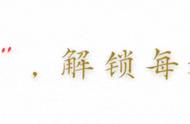守财奴
by Aesop
出自《伊索寓言》

A Miser had buried his gold in a secret place in his garden. Every day he went to the spot, dug up the treasure and counted it piece by piece to make sure it was all there. He made so many trips that a Thief, who had been observing him, guessed what it was the Miser had hidden, and one night quietly dug up the treasure and made off with it.
某个守财奴把他的金子悄悄地埋在了自己的花园里。每天,他都会去把那些财宝挖出来,一个一个地数啊数,好确保一个子儿都不少。如此来来回回的神秘举动,吸引了一个盗贼的关注,并猜出了那个守财奴藏的是什么,某一天深夜,这个盗贼就跑去悄悄地挖出并偷走了这些宝贝。
When the Miser discovered his loss, he was overcome with grief and despair. He groaned and cried and tore his hair.
等到这个守财奴发现财宝都丢失的时候,他的心里充满了悔恨和绝望。一边*,一边痛哭,还一边扯着自己的头发。
A passerby heard his cries and asked what had happened.
一个过路人听到了他的哭声,就问起发生了什么。
"My gold! O my gold!" cried the Miser, wildly, "someone has robbed me!"
“我的金子啊!老天爷!我的金子啊!”守财奴发疯了一样的哭喊道,“我被人抢劫了!”
"Your gold! There in that hole? Why did you put it there? Why did you not keep it in the house where you could easily get it when you had to buy things?"
“你的金子!是在那个坑里吗?你为什么会放在那里?你怎么不放在你屋里呢?那样的话,你想买东西的时候,就很容易拿出来了啊?”
"Buy!" screamed the Miser angrily. "Why, I never touched the gold. I couldn't think of spending any of it."
“买?”守财奴生气地吼叫道。“噢,我从未碰过这些金子。我根本不愿意用它们去买什么东西。”
The stranger picked up a large stone and threw it into the hole.
那个陌生人捡起一块很大的石头,并扔进了守财奴挖的坑里。
"If that is the case," he said, "cover up that stone. It is worth just as much to you as the treasure you lost!"
“这样的话,”他建议到,“把那石头埋起来吧。对你来说,它就跟你那些失窃的财宝一样值钱。”
A possession is worth no more than the use we make of it.
寓意:一样东西如果藏着不用就没有什么价值。
,














